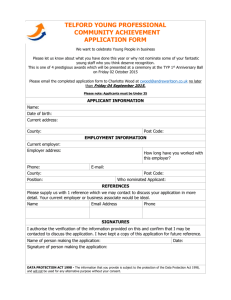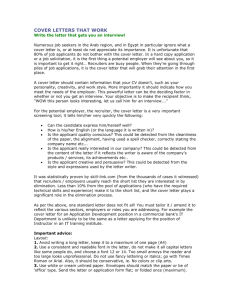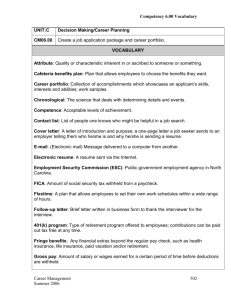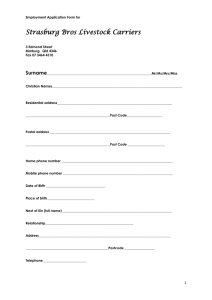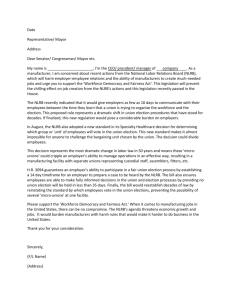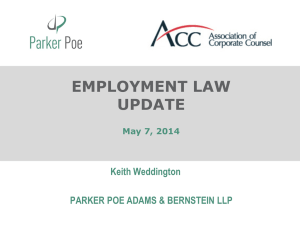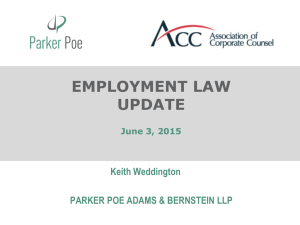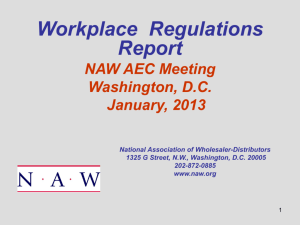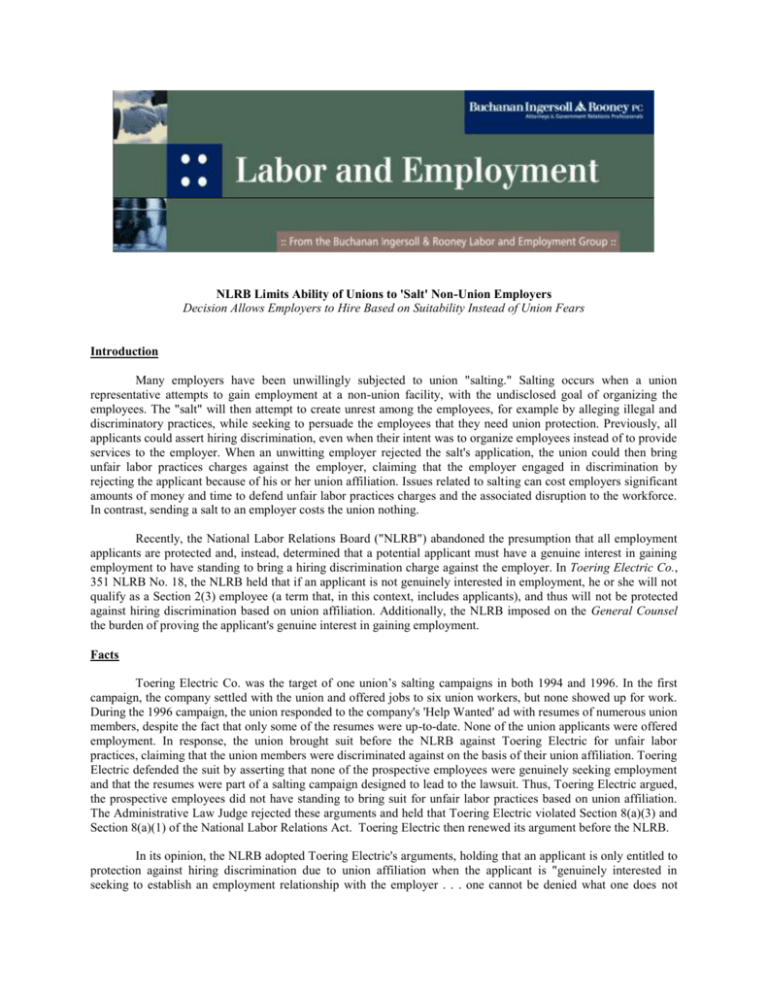
NLRB Limits Ability of Unions to 'Salt' Non-Union Employers
Decision Allows Employers to Hire Based on Suitability Instead of Union Fears
Introduction
Many employers have been unwillingly subjected to union "salting." Salting occurs when a union
representative attempts to gain employment at a non-union facility, with the undisclosed goal of organizing the
employees. The "salt" will then attempt to create unrest among the employees, for example by alleging illegal and
discriminatory practices, while seeking to persuade the employees that they need union protection. Previously, all
applicants could assert hiring discrimination, even when their intent was to organize employees instead of to provide
services to the employer. When an unwitting employer rejected the salt's application, the union could then bring
unfair labor practices charges against the employer, claiming that the employer engaged in discrimination by
rejecting the applicant because of his or her union affiliation. Issues related to salting can cost employers significant
amounts of money and time to defend unfair labor practices charges and the associated disruption to the workforce.
In contrast, sending a salt to an employer costs the union nothing.
Recently, the National Labor Relations Board ("NLRB") abandoned the presumption that all employment
applicants are protected and, instead, determined that a potential applicant must have a genuine interest in gaining
employment to have standing to bring a hiring discrimination charge against the employer. In Toering Electric Co.,
351 NLRB No. 18, the NLRB held that if an applicant is not genuinely interested in employment, he or she will not
qualify as a Section 2(3) employee (a term that, in this context, includes applicants), and thus will not be protected
against hiring discrimination based on union affiliation. Additionally, the NLRB imposed on the General Counsel
the burden of proving the applicant's genuine interest in gaining employment.
Facts
Toering Electric Co. was the target of one union’s salting campaigns in both 1994 and 1996. In the first
campaign, the company settled with the union and offered jobs to six union workers, but none showed up for work.
During the 1996 campaign, the union responded to the company's 'Help Wanted' ad with resumes of numerous union
members, despite the fact that only some of the resumes were up-to-date. None of the union applicants were offered
employment. In response, the union brought suit before the NLRB against Toering Electric for unfair labor
practices, claiming that the union members were discriminated against on the basis of their union affiliation. Toering
Electric defended the suit by asserting that none of the prospective employees were genuinely seeking employment
and that the resumes were part of a salting campaign designed to lead to the lawsuit. Thus, Toering Electric argued,
the prospective employees did not have standing to bring suit for unfair labor practices based on union affiliation.
The Administrative Law Judge rejected these arguments and held that Toering Electric violated Section 8(a)(3) and
Section 8(a)(1) of the National Labor Relations Act. Toering Electric then renewed its argument before the NLRB.
In its opinion, the NLRB adopted Toering Electric's arguments, holding that an applicant is only entitled to
protection against hiring discrimination due to union affiliation when the applicant is "genuinely interested in
seeking to establish an employment relationship with the employer . . . one cannot be denied what one does not
genuinely seek." The NLRB went on to specify that, ". . . submitting applications with no intention of seeking work .
. . is not protected activity." Moreover, the NLRB imposed a duty on the General Counsel to prove, in all hiring
discrimination cases, that the applicant was in fact genuinely interested in employment. Therefore, the NLRB held,
two factors must be met: (1) there must have been an actual application for employment by the individual or
someone authorized to act as his or her agent on his or her behalf, and (2) the application must have "reflected a
genuine interest" in employment. Proving the second factor requires that the General Counsel present ". . . evidence
that creates a genuine question as to the applicant's actual interest in going to work for the employer." The employer
can contest such evidence, however, by showing that the applicant had previously rejected similar offers of
employment with the employer; that the applicant acted in an offensive manner during the application process; or
otherwise acted in a way which was inconsistent with securing employment. For example, belligerent comments in
the application, "disruptive, insulting, or antagonistic" actions during the application process, or submission of stale
or incomplete applications can serve as evidence that the applicant did not genuinely seek employment.
Analysis and Conclusion
The consequences of this case for non-union employers are significant. While in the past, employers had to
act with caution when faced with a salt, the holding in Toering Electric Co. allows employers to make hiring
decisions based on the applicant's suitability for the job instead of the fear of potential ramifications from the union.
Moreover, in a move that can have far-reaching consequences, this case shifts the burden of proof from the
employer back to the union. No longer must the employer bear the burden of proving that the salt was not suited for
the job. Instead, the General Counsel must show that there was a genuine intent on the part of the individual to
obtain employment with the employer.
This remains a complex and difficult area of law. As employers, it is critical that we maintain good
policies and practices and treat our employees in a manner designed to achieve “employer of choice” status. Good
policies, practices and treatment of employees should help you maintain your organization's goal of remaining
union-free while retaining the flexibility to be efficient and competitive within your market. We have successfully
helped many clients across the United States accomplish these human resource strategic goals.
If you have any questions about this article and the impact “salts” might have on your organization, please
call Allan M. Dabrow.
Allan M. Dabrow
(215) 665-3608
Allan.Dabrow@BIPC.com
1835 Market Street, 14 Floor
Philadelphia, PA 19103-2985
Cathlin E. Sullivan
(215) 665-5322
Cathlin.Sullivan@BIPC.com
Buchanan Ingersoll & Rooney PC (www.buchananingersoll.com) has approximately
550 attorneys and government relations professionals practicing throughout the United
States, with offices in Pittsburgh, Harrisburg, Philadelphia, Alexandria, New York,
Buffalo, Washington, D.C., Miami, Aventura, Tampa, Wilmington, Princeton,
Newark, Cleveland, San Diego and Silicon Valley. Within these and other industries,
Buchanan attorneys focus on more than 65 practice areas including Corporate
Finance, Litigation, Intellectual Property, Tax, Government Relations, Health Care
and Labor & Employment. The firm serves national and international clients that
include Fortune 500 corporations, start-ups, technology companies and financial
institutions.
This newsletter is for informational purposes only and is a marketing publication of
Buchanan Ingersoll & Rooney PC. It is intended to alert the recipients to
developments in the law and does not constitute legal advice or a legal opinion on any
specific facts or circumstances. The contents are intended as general information only.
You are urged to consult your own lawyer concerning your situation and specific legal
questions you may have. THIS IS AN ADVERTISEMENT.
Copyright 2006 Buchanan Ingersoll & Rooney PC. All Rights Reserved.


